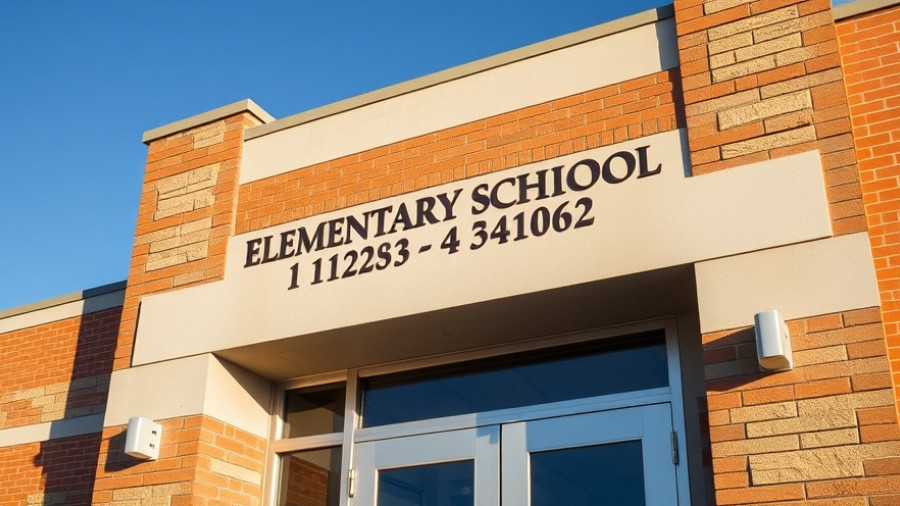
Mother Raises Concerns About Teacher's Behavior
In a troubling incident at Clyde Elementary School in Texas, Jessica Taylor is voicing serious allegations against a second-grade teacher for allegedly bullying her son, a student in the classroom. Taylor described a direct conversation with her 7-year-old son that raised alarms about the classroom environment. When asked about his experiences, he expressed that he felt bullied not only by his peers but that his teacher played a significant role in this distressing behavior.
The Bullying Allegations Unveiled
According to Taylor, her son indicated that classmates were laughing at him, with the teacher seemingly facilitating this behavior by not intervening when necessary. During a subsequent meeting with the school’s principal and the teacher, Taylor confronted these claims, seeking clarity on the teacher's methods. Instead of receiving assurance, she was met with a defensive response, indicating that her son’s emotional responses were the issue rather than the teacher's conduct. 'That doesn't matter,' she retorted, insisting that no child should be subjected to such treatment.
Institutional Response to Bullying Claims
The Clyde Independent School District’s Superintendent, Bryan Allen, confirmed that they are currently investigating the allegations and that the district has a strict no-bullying policy in place. "Our top priority at Clyde CISD is to create a learning environment where all students feel safe," he asserted. However, there remains significant skepticism from parents and the broader community about the effectiveness of these policies, especially given that many parents expressed similar concerns about teacher behavior over the past two decades.
The Emotional Toll on Students and Parents
Taylor's decision to share her family’s experience on social media sparked an avalanche of similar stories from other parents who recounted experiences of bullying linked to this teacher. A common theme emerged: the emotional distress caused has long-lasting effects, and many felt that speaking out years later had little impact on altering the culture of the school. The emotional burden of questioning whether they adequately protected their children weighs heavily on parents, stirring feelings of heartbreak and a deep sense of advocacy for change.
A Call for Action and Change
Driven by a commitment to ensure that no other child suffers in silence, Taylor insists that the school must take robust measures to investigate these allegations thoroughly. “There could be other kids who are feeling the same way,” she worries. Her calls for action underscore the urgent need for schools to prioritize student safety and well-being. By confronting these uncomfortable truths, not just for her son but for all students in similar situations, Taylor hopes to contribute to a cultural shift within her community.
Empowering Parents and Students
Engagement from parents is crucial in tackling issues like bullying. Schools need clear communication channels for parents to voice concerns, and there should be transparent processes for addressing complaints. As Taylor has shown, sharing experiences can foster community support and resilience. Schools also need to offer workshops on recognizing bullying behavior and understanding the emotional impact it has on children.
Conclusion: Cultivating Safe Learning Environments
Parents and educators alike share a vested interest in ensuring that all children feel safe, respected, and supported within the classroom. The heart-wrenching stories like Taylor's serve as pivotal reminders of the emotional landscapes children navigate in their learning environments. As the Clyde school district proceeds with its investigation, this situation calls for proactive measures rather than reactive policies that prioritize student psychological safety above all else. It’s a plea for a collective effort to end the cycle of bullying and foster a supportive educational landscape for all.
 Add Row
Add Row  Add
Add 




Write A Comment